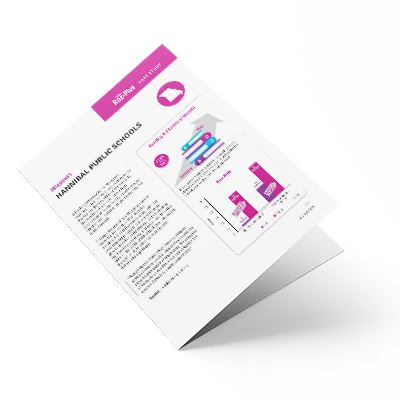About This Research
This case study addressed the earliest stages of formal reading instruction by focusing on kindergarten students. The study included students who were considered to have low pre-literacy skills, which makes this case study informative to the field of potential prevention for future reading difficulties.
Main Findings
On average, after using Raz-Plus students progressed three reading levels, from level B (Kindergarten level) at the beginning of the implementation to level E (first-grade level) by the end of the school year. Students also made gains in sight-word vocabulary and letter identification.
Participants
Participants were one teacher and 22 kindergarten students in a school with a high proportion of economically disadvantaged students.
Study Design and Procedures
This case study compared data for the same group of students before and after the Raz-Plus implementation, which took place in the 2013–2014 school year. During that time, students used resources from Raz-Plus in addition to their core reading program. Measures of sight-word vocabulary and letter identification skills served as pre- and posttest.
Citation
Learning A-Z (revised 2020, February). Case study: Missouri, Hannibal Public Schools. Tucson, AZ: Author.



